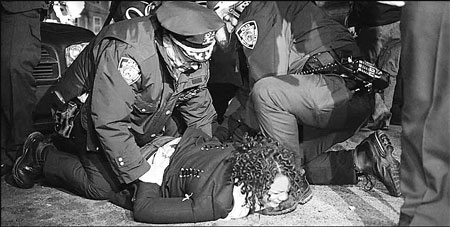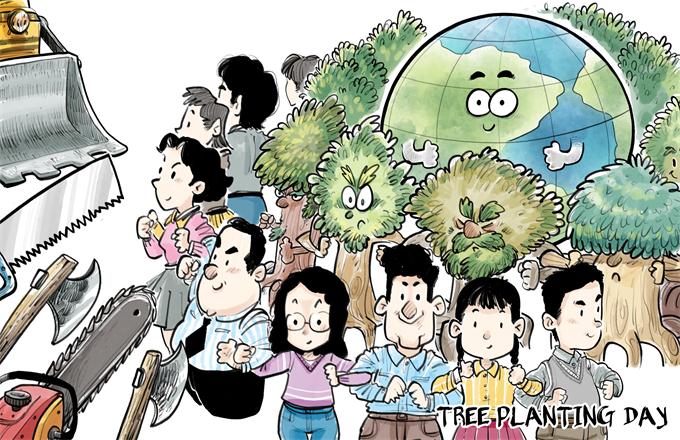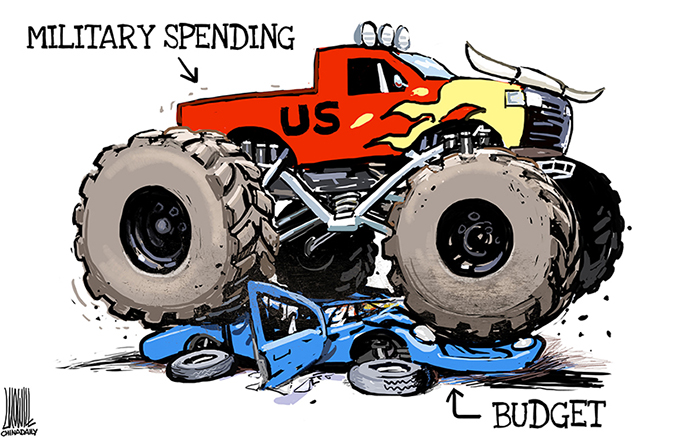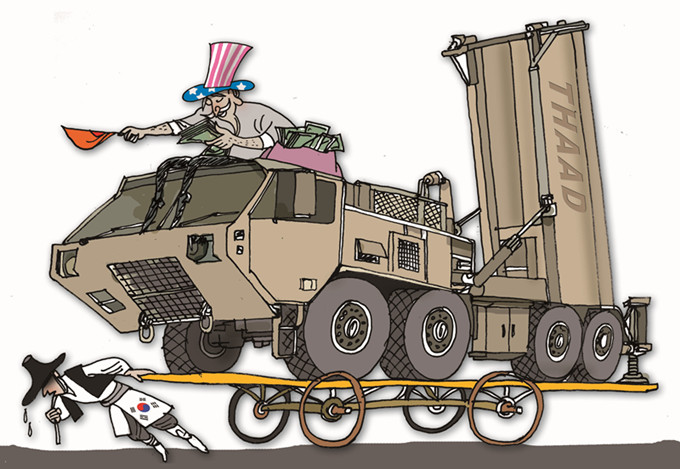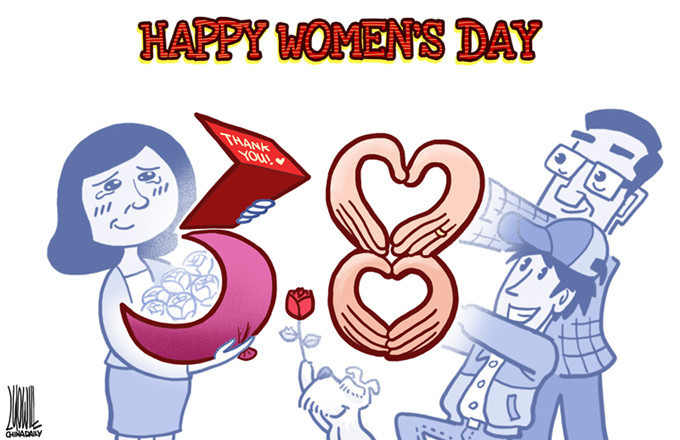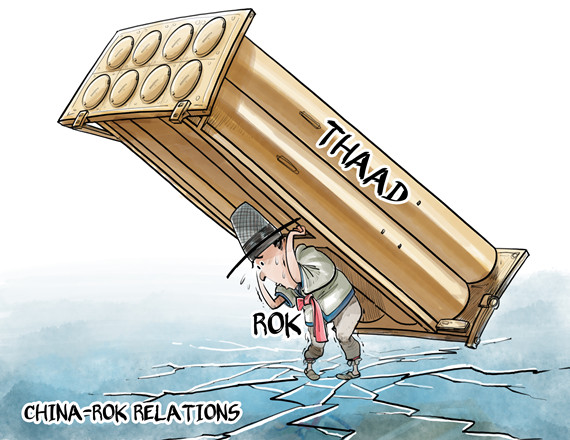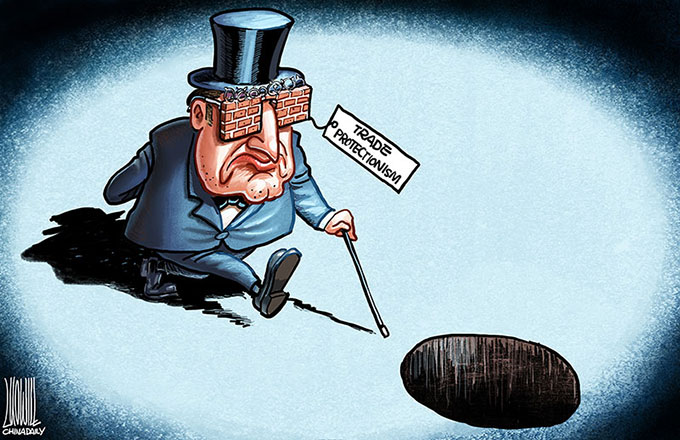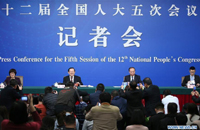Human rights record of the United States in 2012
|
Kimani Gray Protest on Church Ave between E55th st Nostrand Ave, and in Brooklyn, NY on March 13. In response to the shooting of a 16-year-old boy by police, protesters in the Flatbush section of Brooklyn have been holding nightly vigils and marches and there have been frequent clashes with NYPD. (Stephanie Keith / Polaris) |
Editor's note: The State Council Information Office of the People's Republic of China published a report titled "Human Rights Record of the United States in 2012" on Sunday. Following is the full text:
Foreword
The State Department of the United States recently released its Country Reports on Human Rights Practices for 2012, posing as "the world judge of human rights" again. As in previous years, the reports are full of carping and irresponsible remarks on the human rights situation in more than 190 countries and regions including China. However, the U.S. turned a blind eye to its own woeful human rights situation and never said a word about it. Facts show that there are serious human rights problems in the U.S. which incur extensive criticism in the world. The Human Rights Record of the U.S. in 2012 is hereby prepared to reveal the true human rights situation of the U.S. to people across the world by simply laying down some facts.
The human rights situation in the U.S. in 2012 has deeply impressed people in the following aspects:
Firearms-related crimes posed serious threat to the lives and personal security of citizens in the U.S. Some shootings left astonishing casualties, such as the school shooting in Oakland, the Century 16 theater shooting in Colorado and the school shooting in Connecticut.
In the U.S., elections could not fully embody the real will of its citizens. Political contributions had, to a great extent, influenced the electoral procedures and policy direction. During the 2012 presidential election, the voter turnout was only 57.5 percent.
In the U.S., citizens' civil and political rights were further restricted by the government. The government expanded the scope of eavesdropping and censoring on personal telecommunications. The police often abused their power, resulting in increasing complaints and charges for infringement upon civil rights. The proportion of women in the U.S. who fell victims of domestic violence and sexual assault kept increasing.
The U.S. has become one of the developed countries with the greatest income gap. In 2011, the Gini index was 0.477 in the U.S. and about 9 million people were registered as unemployed; About 16.4 million children lived in poverty and, for the first time in history, public schools reported more than one million homeless children and youth.
There was serious sex, racial and religious discrimination in the U.S. Indigenous people suffered serious racial discrimination and their poverty rate doubled the national average. A movie produced by a U.S. director and aired online was deemed insulting to the Prophet Mohammed, sparking protests by the Muslims worldwide.
The U.S. seriously infringed upon human rights of other nations. In 2012, U.S. military operations in Yemen, Afghanistan and Pakistan caused massive civilian casualties. U.S. soldiers had also severely blasphemed against local residents' religion by burning copies of the Muslim holy book, the Koran, and insulting bodies of the dead. There was a huge rise in birth defects in Iraq since the war against Iraq with military actions in which American forces used metal contaminant-releasing white phosphorus shells and depleted uranium bombs.
The U.S. was not able to effectively participate in international cooperation on human rights. To date, the U.S. remains a country which has not participated in or ratified a series of core UN conventions on human rights, such as the International Covenant on Economic, Social and Cultural Rights, the Convention on the Rights of the Child, the Convention on the Elimination of All Forms of Discrimination against Women, and the Convention on the Rights of Persons with Disabilities.




